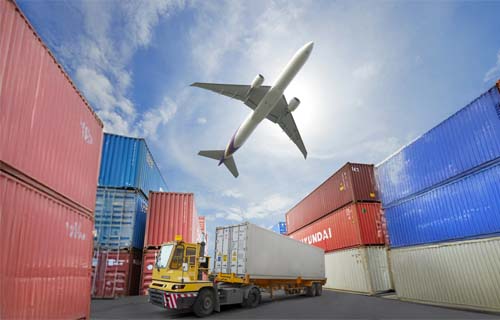Written by Dr Evelyn S. Devadason, IDEAS Senior Fellow in International Trade, Economics and SME Development.
Freight logistics companies have long struggled to strike a balance between environmental goals and cost efficiency —a perceived trade-off that often-positioned sustainability initiatives in opposition to profitability. However, this paradigm is undergoing a significant transformation. Increasing pressures to decarbonize—driven by regulatory requirements, investor expectations, and the broader integration of Environmental, Social, and Governance (ESG) principles—are redefining strategic priorities within the industry.
Today, environmental responsibility and operational efficiency are no longer viewed as opposing objectives; rather, they are increasingly seen as complementary. Advances in technology and operational innovation have blurred the traditional divide between sustainability and cost-effectiveness, demonstrating that environmentally responsible practices can simultaneously drive economic gains. As a result, green initiatives are no longer perceived as financial liabilities but as strategic imperatives essential to enhancing competitiveness and resilience within the freight logistics industry.
In the Malaysian context, these global imperatives are gaining heightened relevance. As the second-largest contributor to national carbon emissions, the freight logistics industry is under increasing pressure to align with the country’s environmental commitments. Decarbonizing the industry has become a national priority. Yet, many firms continue to perceive low-carbon solutions as prohibitively expensive or difficult to scale, posing persistent barriers to widespread adoption.
Despite these challenges, the transition to green logistics is not only critical for meeting Malaysia’s climate targets but is also becoming integral to the country’s trade competitiveness. With global markets tightening environmental standards and favoring ESG-aligned supply chains, trade partners are leaning toward countries and firms that demonstrate climate-responsible logistics. Without meaningful adaptation, Malaysia risks being sidelined in global value chains and losing access to key trade opportunities.
Adoption of Green Practices in Freight Logistics
Our study, grounded in the prioritization and hierarchical structure of key green practices, reveals that the adoption of sustainable practices in Malaysia’s freight logistics industry is gradually evolving, particularly in areas such as advanced vehicle tracking, fleet management systems, and energy-efficient packaging. These initiatives are increasingly recognized not just as environmental necessities but as effective cost-management tools that contribute to operational savings.
However, the overall adoption of green logistics remains limited in scope. Many firms continue to prioritize short-term, operational ‘quick fixes’ over more transformative interventions. This indicates that environmental sustainability is still not fully embedded into the strategic frameworks of most logistics’ companies.
As a result, the journey toward truly sustainable logistics in Malaysia remains a long-term endeavor.
One of the main constraints is the limited implementation of advanced technologies that can significantly enhance both operational and environmental efficiency. Practices, such as paperless delivery systems, increasing vehicle payload capacity, and reducing empty return trips, are still not widely adopted. A lack of focus on digitalization—especially in transitioning to paperless operations—further hinders the industry’s progress toward comprehensive digital and green transformation.
This limited progress stems from the substantial long-term investment required for technological upgrades. Moreover, a significant barrier lies in the uneven distribution of costs and benefits, with logistics service providers (LPS) often bearing the financial risks alone. Accelerating the green transition will require a collaborative approach, where both LSPs and their clients share responsibility and invest in sustainable change.
Green Practices, Drivers and Sustainable Performance
Integrating green practices into logistics is essential not only for reducing environmental impact but also for improving operational efficiency, financial outcomes, market competitiveness, and corporate reputation. Our study, employing fuzzy-set Qualitative Comparative Analysis and Partial Least Squares Structural Equation Modeling, investigates the relationship between green practices across different segments of the logistics sector and overall sustainable performance. It also examines the internal and external drivers that shape and influence the adoption of these practices.
Findings indicate that internal drivers—such as leadership commitment, staff capabilities, and in-house technological readiness—are more influential in the adoption of green practices compared to external pressures or incentives. In particular, green initiatives in transportation, warehousing, and procurement have a stronger positive impact on sustainable performance than those in packaging, distribution, or reverse logistics.
The above findings and insights underscore the importance of focusing on areas where the return on investment in sustainability is both measurable and impactful.
Primary Focus Areas
To advance sustainable logistics meaningfully in Malaysia, there must be a deeper internalization of sustainability principles at the firm- or company level. Rather than treating sustainability as a compliance-driven or peripheral activity, it should be integrated into the organization’s core strategy and culture. Companies must begin to see sustainability not just as an environmental responsibility, but as a key lever for cost control and long-term competitiveness.
This shift demands strong leadership from LSPs. Managers and decision-makers must prioritize internal green enablers—embedding environmental considerations into decision-making processes, investing in employee training, enhancing technological capacity, and establishing clear sustainability goals. Such efforts will help align logistics operations with broader environmental objectives and drive sustained performance improvements.
From an industry-wide perspective, it may not be feasible for all segments of logistics to make the green transition as some LSPs maybe constrained by resources (financial and non-financial) and tight profit margins, and some segments may not produce significant sustainable outcomes at this point in time. A one-size-fits-all approach to green logistics may not be feasible. Instead, a strategic, phased approach should prioritize the three segments with the most significant impact on sustainability outcomes: transportation, warehousing, and procurement. These areas offer the greatest potential for measurable improvements in both environmental and business performance.
Government support plays a crucial role in this transition. While national strategies, such as the National Transport Policy 2019–2030 and the Low Carbon Mobility Blueprint 2021–2030, have laid a strong foundation for green transportation—by promoting electric vehicle (EV) adoption, EV infrastructure development, and smart logistics—the warehousing segment has only recently gained momentum. The introduction of the Smart Logistics Complex (SLC) incentive under the 2025 national budget marks a significant step forward. This initiative supports the transformation of existing warehousing facilities into smart, sustainable operations through the adoption of green technologies, such as solar energy, biomass, biogas, mini hydro systems, rainwater harvesting, and green building standards.
Driving Sustainable Change
Ultimately, the internalization of sustainability across Malaysia’s freight logistics industry will require a coordinated effort—one that is driven by firm-level commitment (such as investment in digital and green technologies), enabled by industry-wide strategies (shared accountability across the logistics value chain), and reinforced through robust government support (especially for high impact areas). Only through this collaborative approach can the sector meaningfully contribute to national climate goals while enhancing its global competitiveness.
This article was featured in Business Today, 11 July 2025
The views expressed in this article are solely those of the authors and do not necessarily represent the views or positions of IDEAS Malaysia. All opinions are the author’s own.



